Legatum (ARC), Luminos Fund and our Broken Education Systems
Are African students exploited by impact investment firms harvesting their data?
In this article - which admittedly is a little long - I summarise my reflections on investigating an arm of the Legatum financial empire, the Luminos Fund. This arm is specifically focused on education in Sub-Saharan African countries. Collection and analysis of human data is essential for an impact investment firm, in the central areas of healthcare, finance and education.
I’ve published this article recently on UKColumn News about the ways that our education systems, globally, have been captured. Being an educationalist, the most concerning element of this capture is the ongoing exploitation of students - of all ages. Not only is students’ personal data harvested - although that is bad enough. We are talking about people’s minds.
The Behavioural Insight Teams or ‘Nudge Units’ around the globe have been unethically, systematically analysing, manipulating and directing students’ brains - physiologically and psychologically – for years, in attempts to profit from poverty.
Think I’m being melodramatic and over-exaggerating?
Maybe you believe students still have a ‘choice’ whether to engage in ‘learning’ or not? And that anyway, that learning is ‘valuable’, ‘useful’ and a ‘positive social good’, right?
Maybe.
Or maybe we should reconsider not only how definitions of words like ‘vaccine’ or ‘pandemic’ have been hijacked in recent times, but also how more day-to-day phrases, like ‘learning’ have become skewed by those in positions of power.
Let me explain.
I’ve previously described the rabbit holes of impact investment firm Legatum empire’s, here, here and here. And a co-authored summary with
is here. As one of the major arms of the financial giant, the Luminos Fund (also called “Second Chance”) presents even more concerns about how learning has been captured by corporate elites.African countries are an easy target. As I’ve described before about Public Private Partnerships (PPPs), these impact investment firms can swoop into low socio-economic areas, spout their MBA buzzwords and quickly establish ‘measurable baselines’ and then subsequent ‘measurable outcomes’. These are students who would not otherwise have access any basic resources, let alone formal assessments of their ‘learning’.
How valid are these ‘measurables’? Well let’s have closer look at what Luminos offers, and then we can make a judgement call.
First off, what exactly is the Luminos Fund? According to the website:
“The Luminos program […] is an accelerated learning program that helps children catch up to grade level, reintegrate into government schools, and prepare for lifelong learning. In each of our countries of operation, Luminos brings a holistic approach: working in partnership with community-based organizations to co-create country-specific curricula and implement the program. To date, Luminos catch-up education programs have enabled over 218,541 out-of-school children to get back to school. The Luminos Fund is currently working in Ethiopia, Ghana, Lebanon, Liberia, and The Gambia.”
[NB Conspicuous by its absence is the African country I’ve written about before, Rwanda – a usual target of Legatum - but we’ll focus on the countries mentioned for now].
In line with the usual melodramatic language, the rationale for Luminos is stated like this:
“The global community is at risk of failing a generation of young people in the Global South who may never become the doctors, leaders, human rights activists, or teachers they might have been. Millions of children were already shut out of school. And, since COVID-19, millions more have fallen so far behind they are at grave risk of dropping out forever.”
No mention of the cause of the WHO ‘guidelines’ that forced these Government policies of Lockdowns during the covid era? No, of course not. And predictably, the Luminos rationale goes on to say:
Through our mission, we are working to help the world achieve UN Sustainable Development Goal (SDG) 4: “Ensure inclusive and equitable quality education and promote lifelong learning opportunities for all.”
So I think we can see why the investment banks can see their ‘impact’ over time: it’s supported by powerful forces.
What is the Luminos Fund?
Let’s look at the actual programmes of learning, which I don’t deny benefit some students’ progress with literacy and numeracy and self-confidence. No doubt of that. It’s the overall lack of transparency and accountability of these programmes that concerns me. And should concern us all.
Luminos teachers (perhaps more accurately described as ‘facilitators’) are recruited from within the communities of the students – they are unqualified other than usually a High School Leavers’ Certificate (or equivalent). But they’re provided with 30 days of teacher-training over the first year, with supervision/support from Luminos staff/partners. Lucky them.
How much are these teachers paid? That’s an unknown. I searched the website and annual reports and there seems no specific mention of their teachers’ salaries. And we know that what is NOT said is often more important than the words published. The only ‘benefit’ to the programme is these individuals are drawn from the communities they are to serve. I can see how that is helpful in overcoming the hierarchies often present in these types of education programmes. You see only some of these programmes are in the students’ Mother Tongue. But many of the learning resources I found in my investigations into Luminos provision were in English, eg:
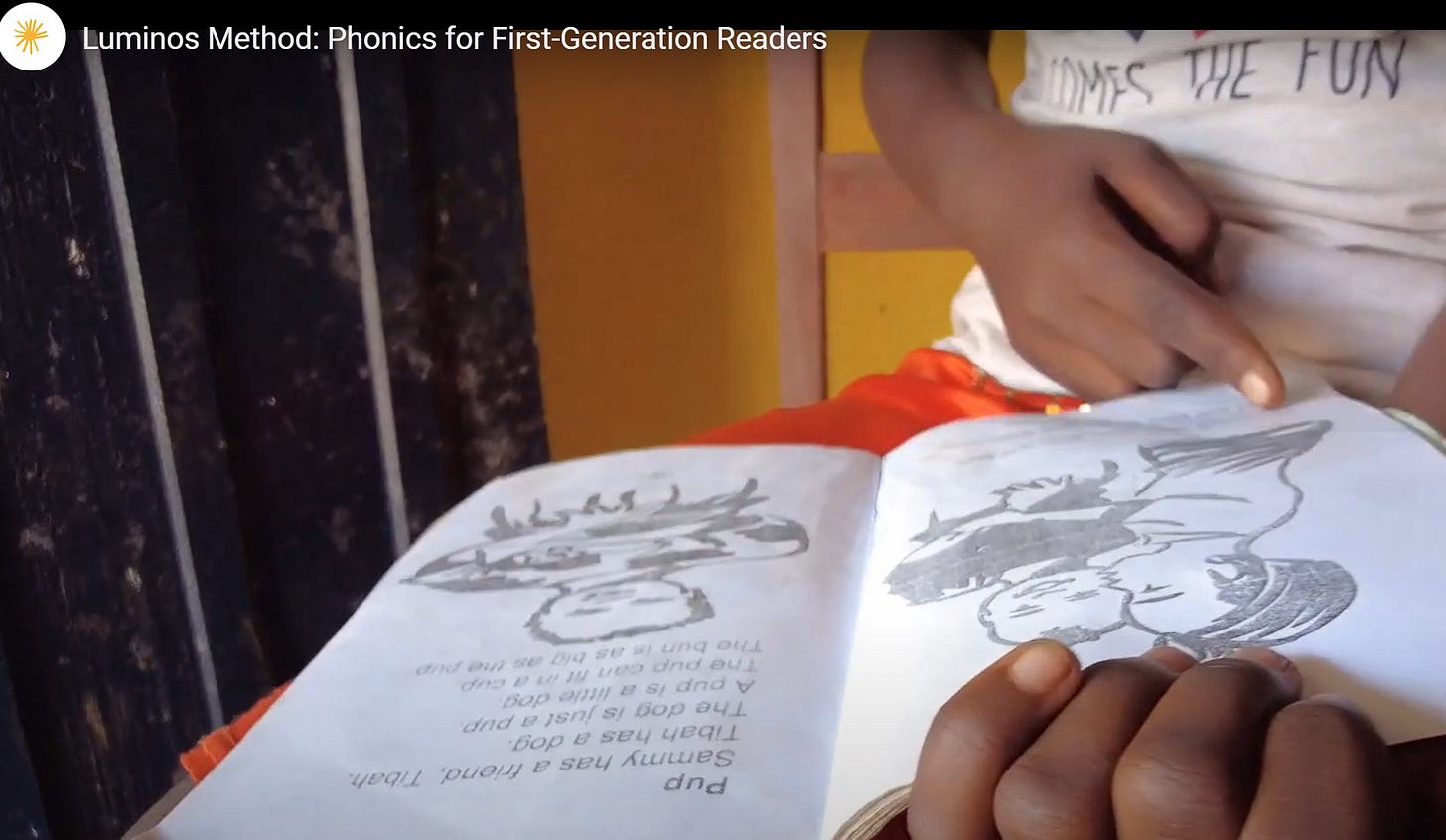
So the Luminos programme itself forms a kind of ‘pool’ of potential future ‘teachers’: Luminos coordinators (volunteers?) can shoulder-tap appropriate ‘graduates’ for a (paid?) role. Other than this, there seems to be no formal training or qualification pathway in place for these Luminos students. The Luminos Fund is an intense, short-term programme, with each cohort lasting a maximum of 10 months before students ‘return’ to their state-provision schooling. Job done. You see it’s a numbers game, in case you haven’t noticed, on each of these Luminos ‘partners’ (frighteningly similar) scoreboard websites:
Although there is no formal teachers’ training for these community teachers, there are (UK) universities that are partnered with the Luminos Fund. Specifically, Sussex and Cambridge Universities (more on these institutions below) conducted an assessment which was mainly a quantitative exercise of small numbers of Luminos learner-participants. For instance, in this ‘results’ page, the analysis was based on students’ ability of how many words per minute they could read. Their level of comprehension of these words however, seemed to be missing?
I won’t need to point out how the Luminos Fund (and parent Legatum Foundation) funded studies that confirmed how wonderfully ‘successful’ their own education programme was. Congrats to them for that! One of the ‘independent(!)’ reports, entitled “Luminos Program Impact Evaluation: Randomized controlled trial of an accelerated learning program for out-of-school children in Liberia” was authored by academics who benefit from funding from UN, The World Bank and BigTech like Hewlett etc. The report was produced with IDInsights, And here is where it gets interesting…
“IDinsight is a mission-driven global advisory, data analytics, and research organization that helps global development leaders maximize their social impact…. a wide range of data and evidence tools, including randomized evaluations and machine learning, to help decision-makers design effective programs and rigorously test what works to support communities. We work with governments, multilateral agencies, foundations, and innovative non-profit organizations in Asia and Africa…a wide range of sectors, including agriculture, education, health, governance, sanitation, and financial inclusion. … offices in Dakar, Lusaka, Manila, Nairobi, New Delhi, and Rabat.”
This global $multimillion BigTech runs digital AI surveillance and assessment tools for many familiar corporates and has recently been awarded a US$1.1m ‘grant’ from Google to target ‘vaccines’ for pregnant women:
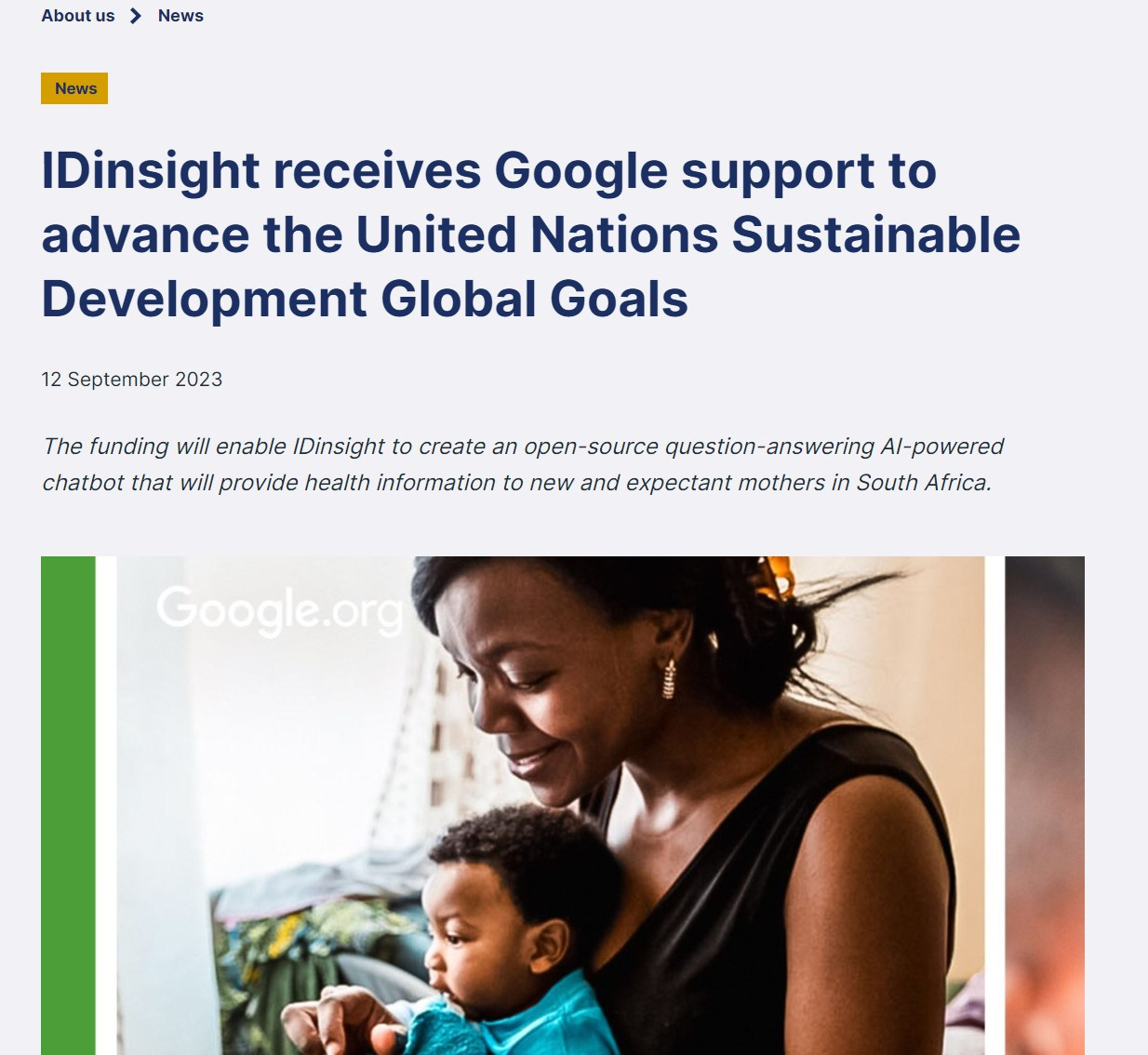
IDInsights interference in personal health data intersects with education provision by providing a ‘one-stop-shop’ App for teachers and students - with a ‘free’ device of course. To quote their website:
“For example, if you are running a teacher training program, you could track which teachers did not attend the training and whether teachers who attended implemented what they learned. You can then quickly identify which goals are not being met, and you would know how to investigate why.” (my emphasis)
Even in [uh hum] ‘developed democracies’ like ours, it’s problematic to try to quantify how many children are ‘not in school’. For instance, how long does an ‘absence’ count as withdrawn, and should those in difficult domestic situations be given (more) attendance flexibility? Since the covid era in particular, many parents who have (understandably) withdrawn from Government overreach, have taken independent options rather than state-sponsored services like education, housing and healthcare. But in developing countries, this school engagement ‘social problem’ is much more complex. Seasonal agricultural work means ‘all hands on deck’ for poorer families at harvesting time, for example. Many students opt out of school for the loner-term because of costs, location, overcrowding or bullying. Another consideration is that many educational programmes are provided by missionary-type NGOs, and as Luminos’ website put it:
“It was especially problematic that the system was based on out-dated colonial-style teaching principles of rote learning about a world unrelated to the children’s own experience and identity.”
So yes, in a truly Hegelian way, there is a ‘problem’ - some African countries’ school-children are perceived to be ‘failing’ by ‘Western’ standards. And that’s where the Legatum Luminos Fund can step in with a pseudo-philanthropic ‘solution’ - impact investment through PPPs.
Who are these Public Private Partners?
First, let’s have a look at the Luminos Fund Partners, by which I mean those which are financial and service beneficiaries of, and grantees to, the Luminos programmes.
Luminos Ethiopia Partners are: The African Child Policy Forum (ACPF) where I am happy to supply one of the best examples of the conflicts of interest inside the regulatory capture. You see the ACPF Chair is Mr. Elhadj As Sy - sounds familiar? That’s because he is a WHO/UN senior leader:
Mr. Elhadj As Sy is Co-Chair of the WHO/World Bank ‘Global Preparedness Monitoring Board’. He is Chair of the Kofi Annan Foundation Board (which is funded by Gates, Meta, the Open Society the UN Democracy Fund etc) and no less than the Governor of Wellcome Trust. Mr. Elhadj As Sy is also a member of the Governing Boards of Interpeace, The BigFood empire of ‘Power of Nutrition’ and the Lego Foundation. (I’ve already discussed in previous posts how these are all partners of Legatum). Mr As Sy was also Secretary General of the International Federation of Red Cross and Red Crescent Societies (IFRC) until 2019. How convenient. It goes without saying (but I will anyway) that he is also a WEF member, and has attended Davos e.g. see this from 2018:
It’s also worthwhile pointing out how he interconnects with the historical elements of the capture of our healthcare systems. As his bio blurb states:
“[Elhadj As Sy] previously served in various senior roles in UNICEF, UNDP, UNAIDS, the Global Fund to Fight AIDS, Tuberculosis and Malaria. He has held multiple advisory roles, key among which are in the Independent Oversight and Advisory Committee for the WHO Health Emergencies Programme. In 2016 Mr. Sy was appointed by the UN Secretary-General Ban Ki-moon to the High-level Advisory Group for Every Woman Every Child and later to the Global Health Crises Task Force, in response to the West African Ebola epidemic in 2016” (my emphasis again)
So let’s just summarise this important point: on the Board of Legatum’s Luminos Fund, is the Co-Chair of WHO’s fear-mongering anti-science Global Preparedness Monitoring Board (GPMB). The same WEF/WHO that Jordan Peterson’s Legatum-funded ARC is purportedly claiming to be a replacement for. (You just couldn’t make this sh*t up). It is hypocritical to support Legatum’s ARC if critical of WEF/WHO. These entities are branches from the same, rotten tree.
Other Ethiopian partners to Luminos are Emmanuel Development Association (EDA); Ethiopian Evangelical Church Mekane Yesus; Hope for Children in Ethiopia which has financial partners such as the Church of Sweden Investments, and Geneva Global part of Global Impact funding Gavi [Bill & Melinda Gates Foundation], Merck and Meta in behavioural science programmes like AHO and academic capture through the Vaccine Confidence Fund and the infamous….
Integrated Service on Health and Development Organization funded by PAPFAR (AIDS relief) and USAID; Positive Action for Development (PAD); Summer Institute of Linguistics (language software) and Wolaita Development Association (WoDA).
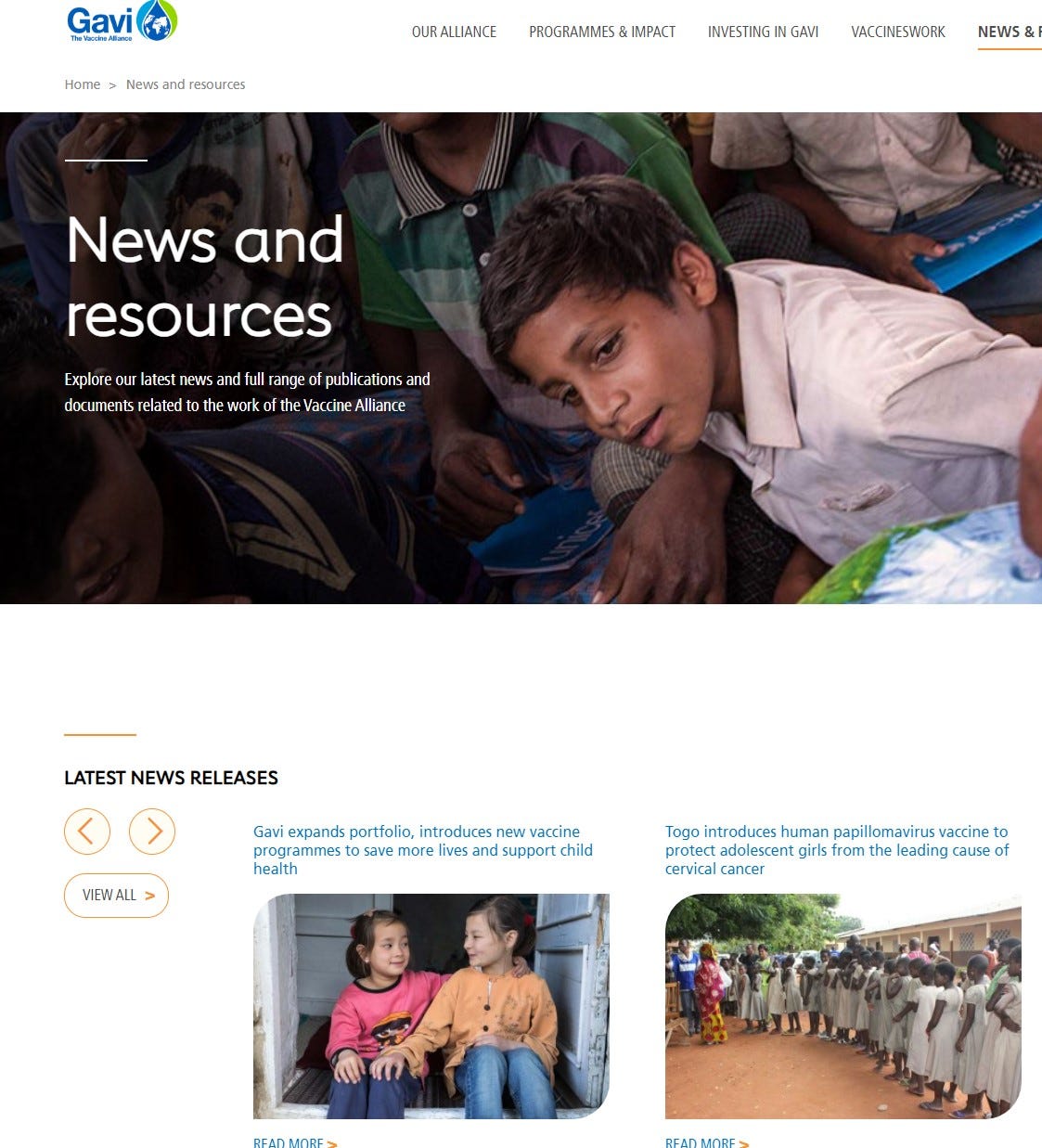
Ghanian Partners of Luminos are: Link Community Development (blog); School for Life (another Unicef/USAID PPP programme). Lebanon Partners are: Ana Aqra Association (game-based elearning via Khan, Amazon and other familiar data-harvesting corporates); Basmeh & Zeitooneh (promoting elearning too). The Gambia Partners: Effective Intervention (UK academic charity funded by LSE/MIT etc) and a Swedish based charity; Future in Our Hands. Luminos Fund’s Liberian Partners are the Kids’ Educational Engagement Project (KEEP) (partners listed in graphic below); Liberia Institute for the Promotion of Academic Excellence (LIPACE); Restoring Our Children’s Hope (ROCH); Special Emergency Activity to Restore Children’s Hope (SEARCH). I will return to the Liberian connection below.
The Board of Luminos consists of six individuals. Two of whom I have already mentioned in previous posts as they are on the Board at Legatum – Alan McCormick and Philip Vassilliou.
Dr Kwama Akyeampong is an international academic specialising in quantitative educational research and recently left the UK’s University of Sussex to take up a role as Chair of International Education & Development at the Open University. Like his Ethiopian colleague, Elhadj As Sy, Dr Akyeampong also has close ties (co-chairs) at the World Bank. In 2020, he was appointed to the new Global Education Evidence Advisory Panel (GEEAP) established by the World Bank and UK Foreign, Commonwealth and Development Office (FCDO). Looking at his pinned Tweet, maybe readers would like to respond, along the lines of “unmask our kids?"
Atje Drexler is also Senior Vice-President of the Robert Bosch Stitung inc Foundation. She has a background in BigPharma and is currently on various boards including the Climate Justice Resilience Fund and ‘Inequality and Peace’. She also heads an interesting exchange programme for youth in Russia/Germany.
We return to Liberia with the Board member George Kronnisanyon Werner, who has a background in Liberian Government, serving as Minister for a PPP ‘partnership for schools’ programme.
Finally, Erin Ganju is Managing Director at Echidna Giving, one of the largest private funders in girls’ education in lower-income countries. Echidna has ‘donated’ $millions to Luminos Fund. Of course it has. Ganju is also creator of a basic literacy programme called “Room to Read” and co-author of “Scaling Global Change: A Social Entrepreneur’s Guide to Surviving the Start-up Phase and Driving Impact.” Which is a ‘how-to’ guide for:
“social entrepreneurs who have a vision to change the world and need a strong organizational foundation to do it, utilizing Room to Read as an organizational case study.”
Seems like the Luminos Fund offered her the perfect opportunity to enable the ‘scaling-up’ that is such a crucial part of these impact investment firms strategy.
Conclusion
On the surface, the educational opportunities Luminos Fund offers students in developing countries seems fantastic. And there’s no doubt that there has been significant benefits for those who have engaged in the learning resources and navigated their pathways through this PPP into their home countries education pathway. Any time spent with a child who has lost the joy of learning, that leads to a reconnection with reading, numeracy and social skills, must be a net gain for our societies.
But at what cost?
The difficulty I have is knowing that these corporate giants are exploiting their power with these children, and that there is little to no transparency in what these ‘education’ programmes consist of. I have read through some of the dense, repetitive ‘research’ from Luminos about the educational outcomes and I feel short-changed. Where is the thorough qualitative analysis? Where are the details of the statistical methodologies? Where are the nitty-gritty details of what the research actually achieved?
There are important clues in one of the reports, where the researchers mention that the numbers of participants was much lower than expected (how low?). The drop-out rate was high, the students were unable to be contacted (ah ha!), the rainy season meant that attendance was poor and so on. The frustrations of ‘grass roots’ fieldwork like this was evident – and a stark contrast to the click-bait headline for potential investors of ‘dramatic learning gains’ and ‘transformative experience’. And then we read about the ‘assessment’ of learning. Isn’t it inevitable that most children with any kind of adult attention, will feel motivated to learn and hence their reading and writing will improve over time? What meaningful benefit for these students was found in the ludicrous, arbitrary measurement of the numbers of [English?] words they could ‘read’ per minute?! For instance, how was their level of vocabulary improved and what about their social interaction, articulation and self-esteem?
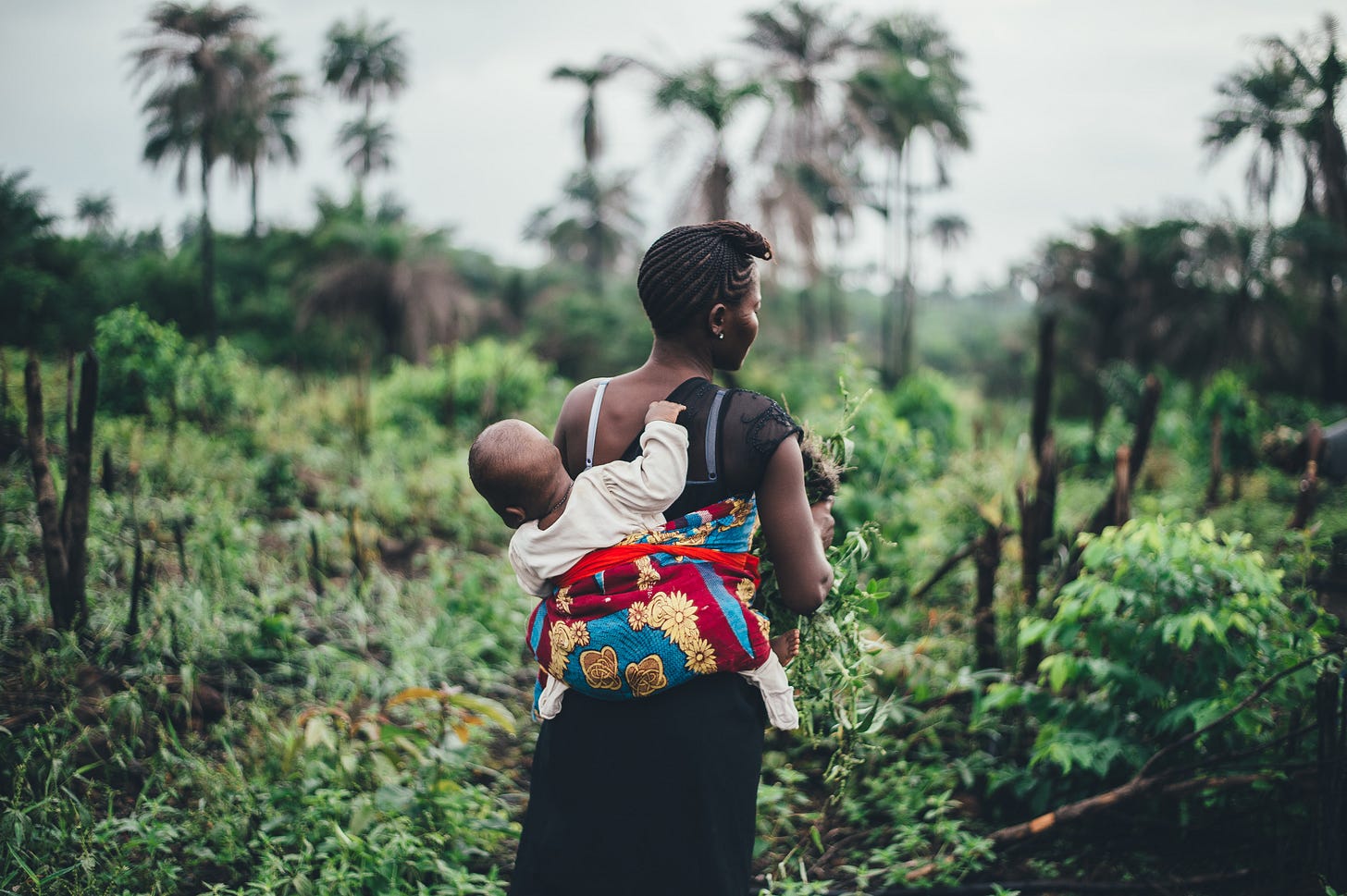
Just like the pseudo-academic Science™ that BigChem publishes about the aerial poison industry in New Zealand that I’ve written about previously - the educationalists comply. The ‘impact’ of the ‘investment’ in these poor communities can easily be measured to suit an agenda. It’s a neocolonialism that is global and yet invisible. And those with specific roles, as I’ve detailed above, perhaps believe they really are ‘providing benefit’ for students.
But it is what is NOT measured, that really provides our understanding of what is going on here. There are so many gaps in our knowledge of how these conflicts of interest between BigPharma, BigTech, BigFood and the private equity/investment firms interact.
Where is the informed consent for these teachers and students? What kind of learning resources propaganda are they given ‘for free’, including the ‘smart’ devices? And how are teachers’ and students’ behaviours and data being monitored, surveilled and targetted for specific ‘measurable’ services - including unnecessary [harmful], personal healthcare interventions? Who owns the Intellectual Property created from these projects? How biased are the teachers’ lesson plans? How valid are the ‘assessments’ in students’ outcomes? What is the AI ‘learning’ from these students’ minds and words - and why? And how is that knowledge being ab/used by Governments - which we know do not serve their citizen’s best interests?
Do students know the extent of our education systems capture and can we ‘opt out’?
There are plenty more questions to ask and plenty to write about these concerning unethical educational programmes. But I have made my point, I hope?
Philanthropy is another word that has been hijacked. What I’ve outlined here is mechanisms of corporate greed. Let’s not support the corporate agendas created by $multimillion non-elected giants. let’s escape a digital prison. Let’s focus on our own communities, and help each other with authentic life-long learning journeys, whatever those maybe.

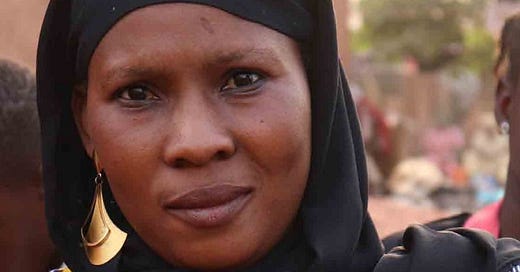



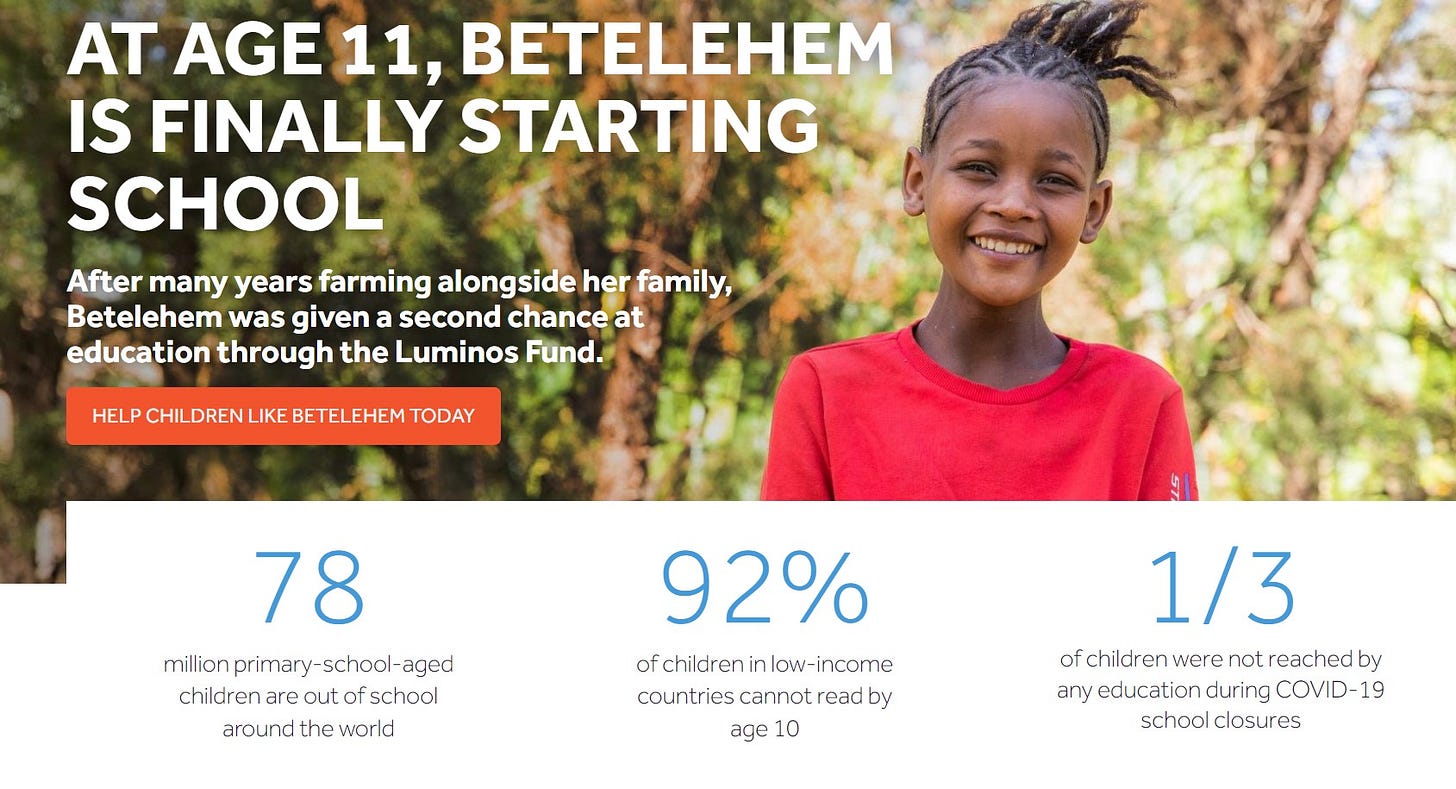
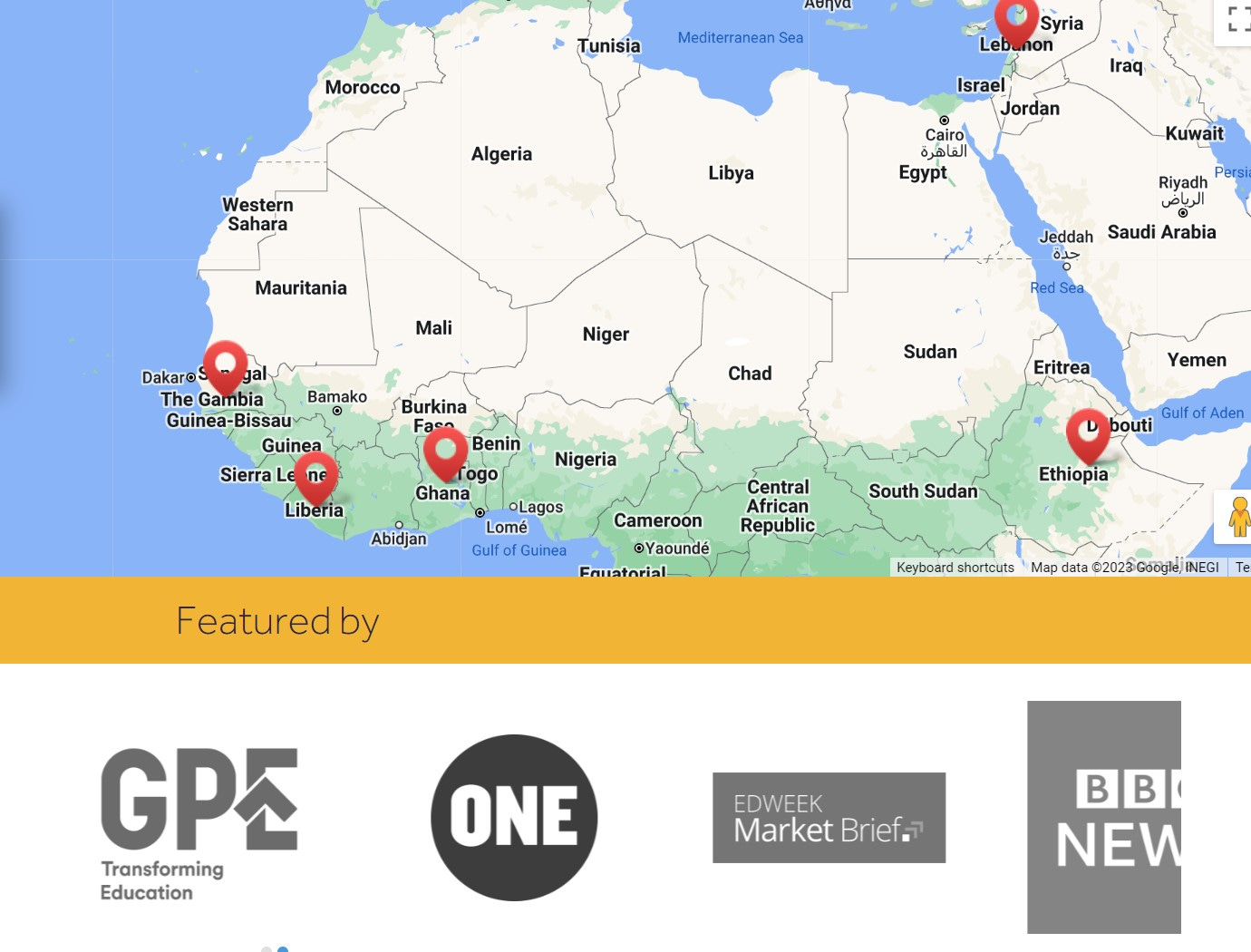
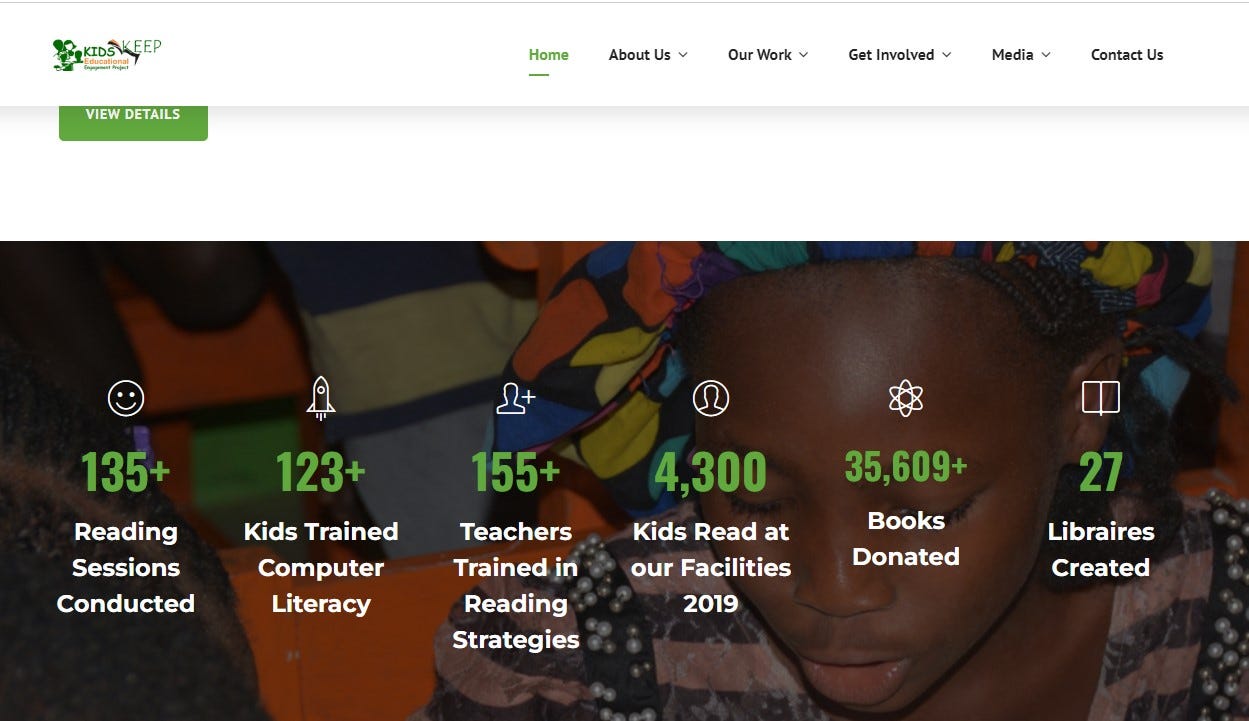
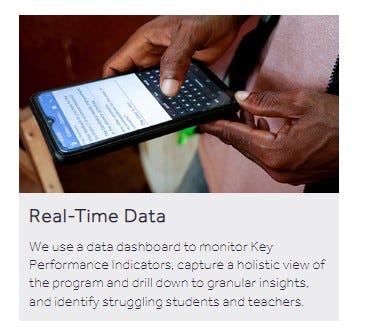
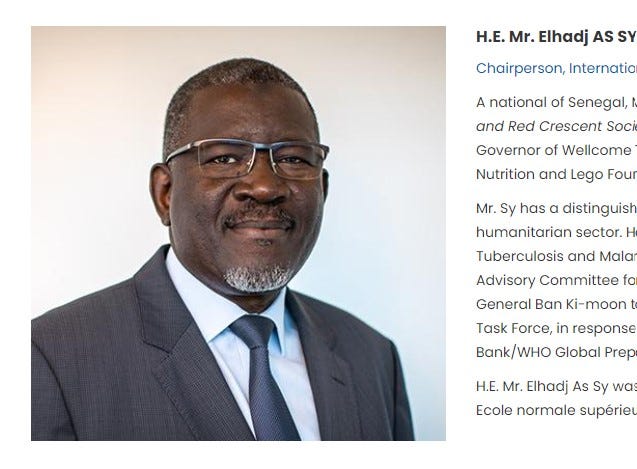
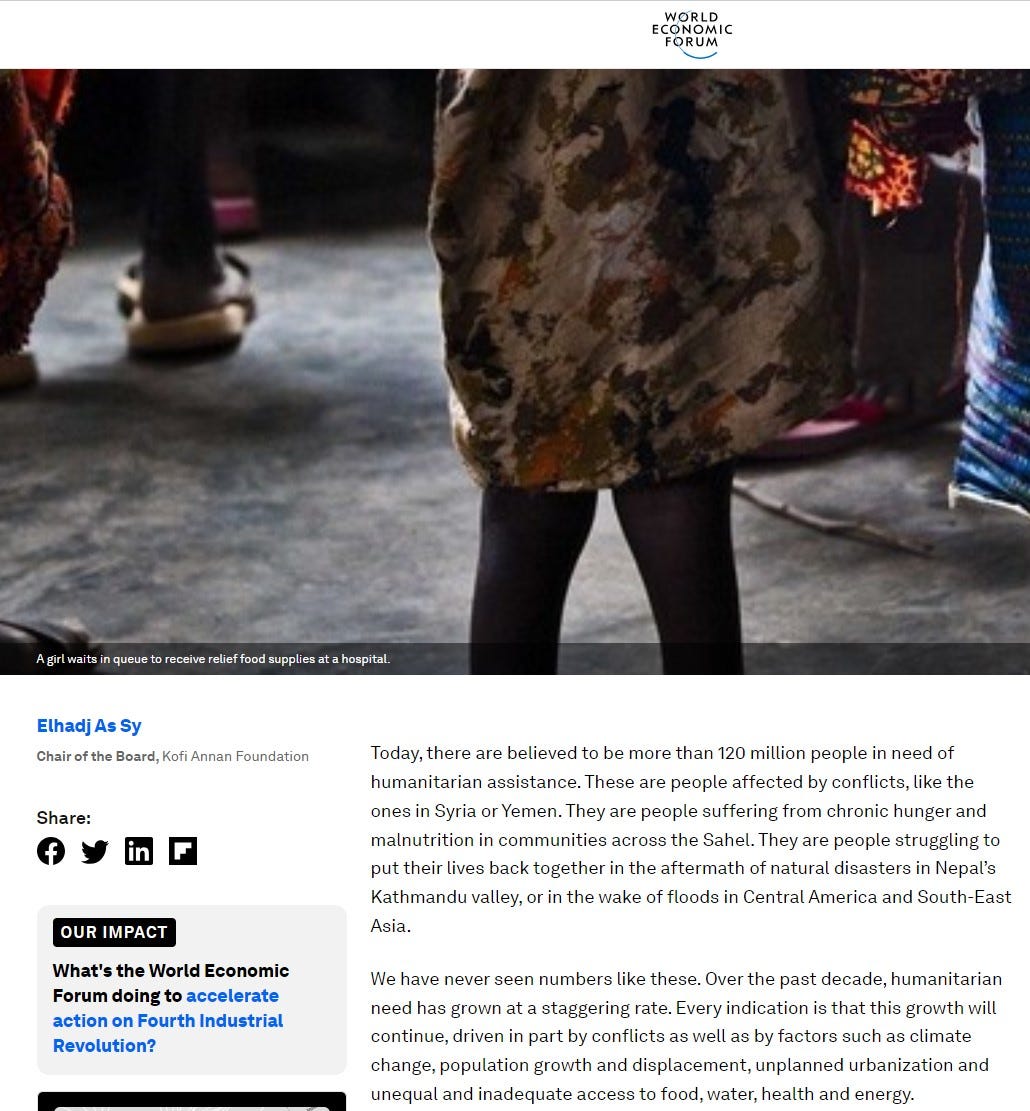

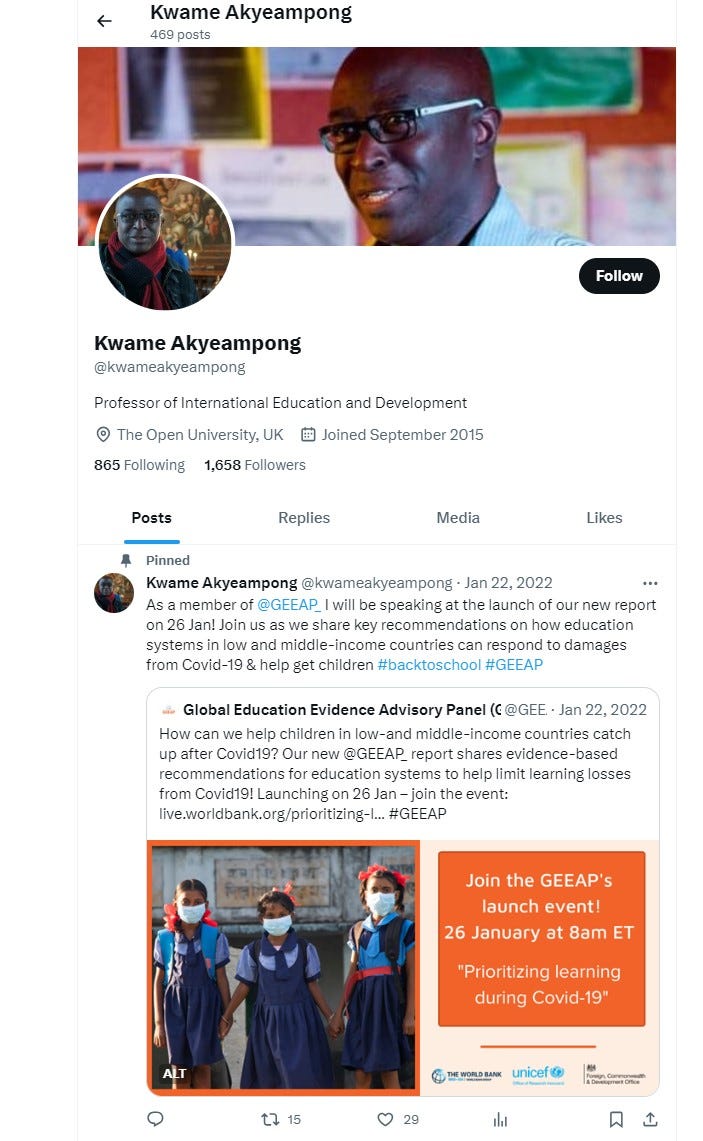
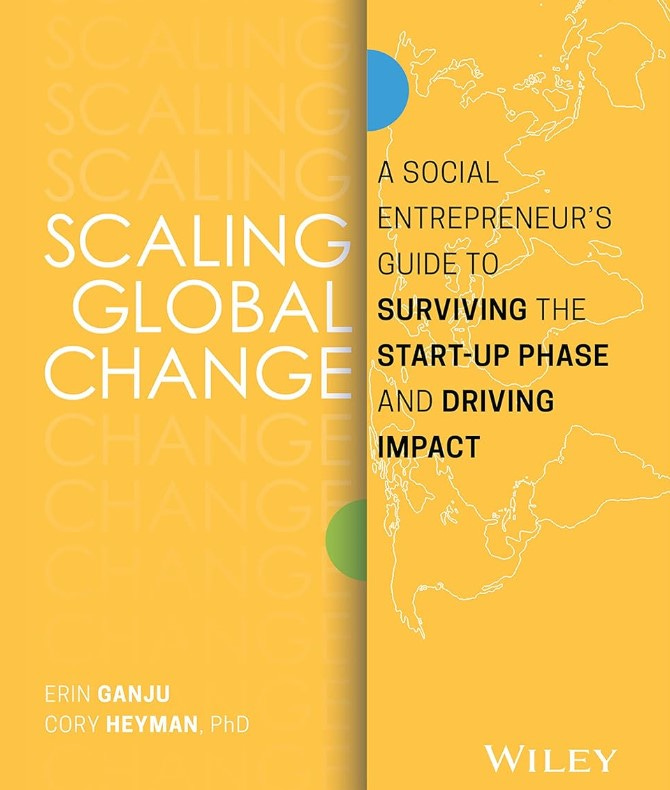
Investigative journalism at its very very best!! Huge congrats on this piece Ursula.
Amazing research. The connection with Bill Gates is that he funds Legatum?